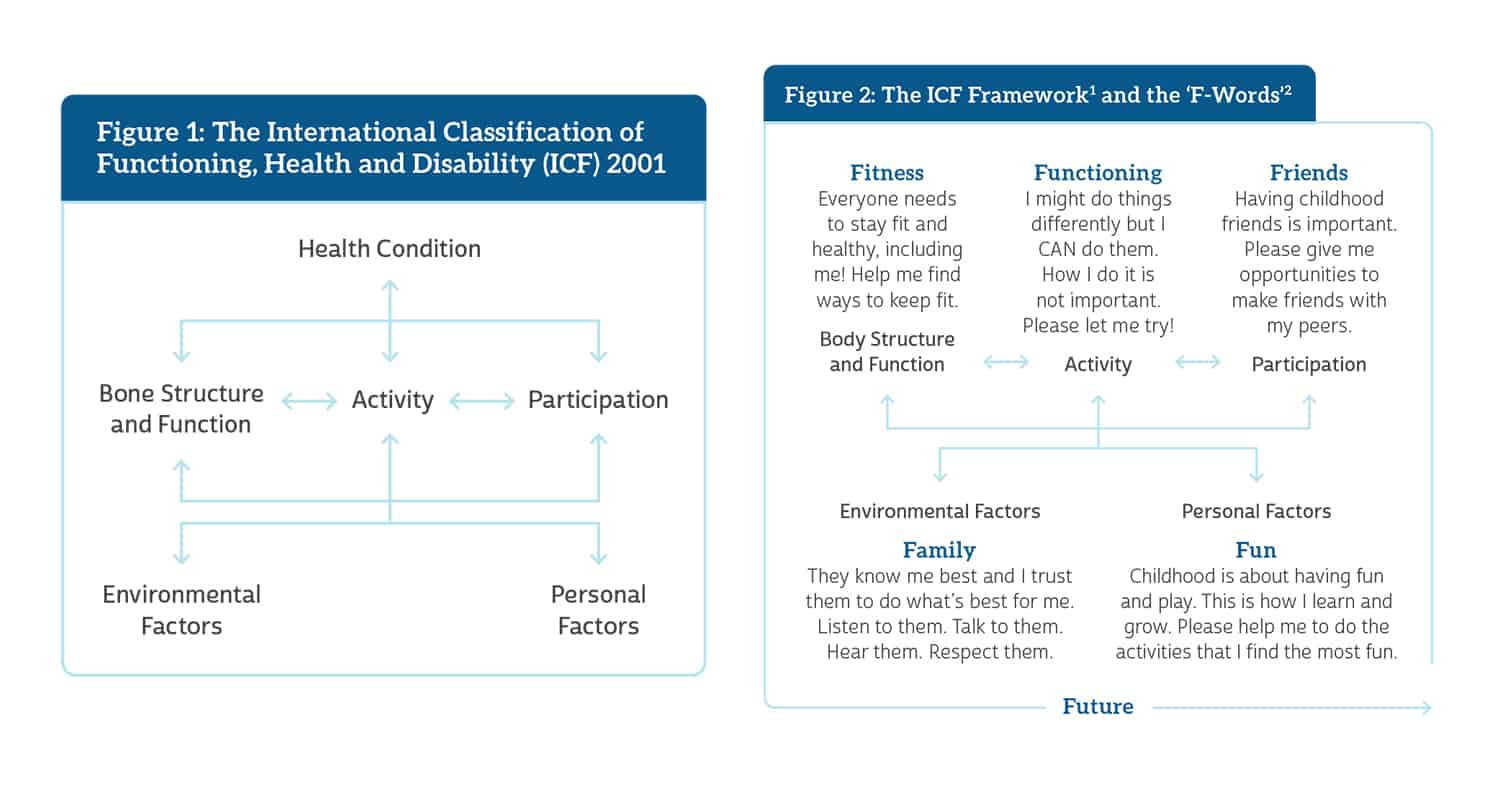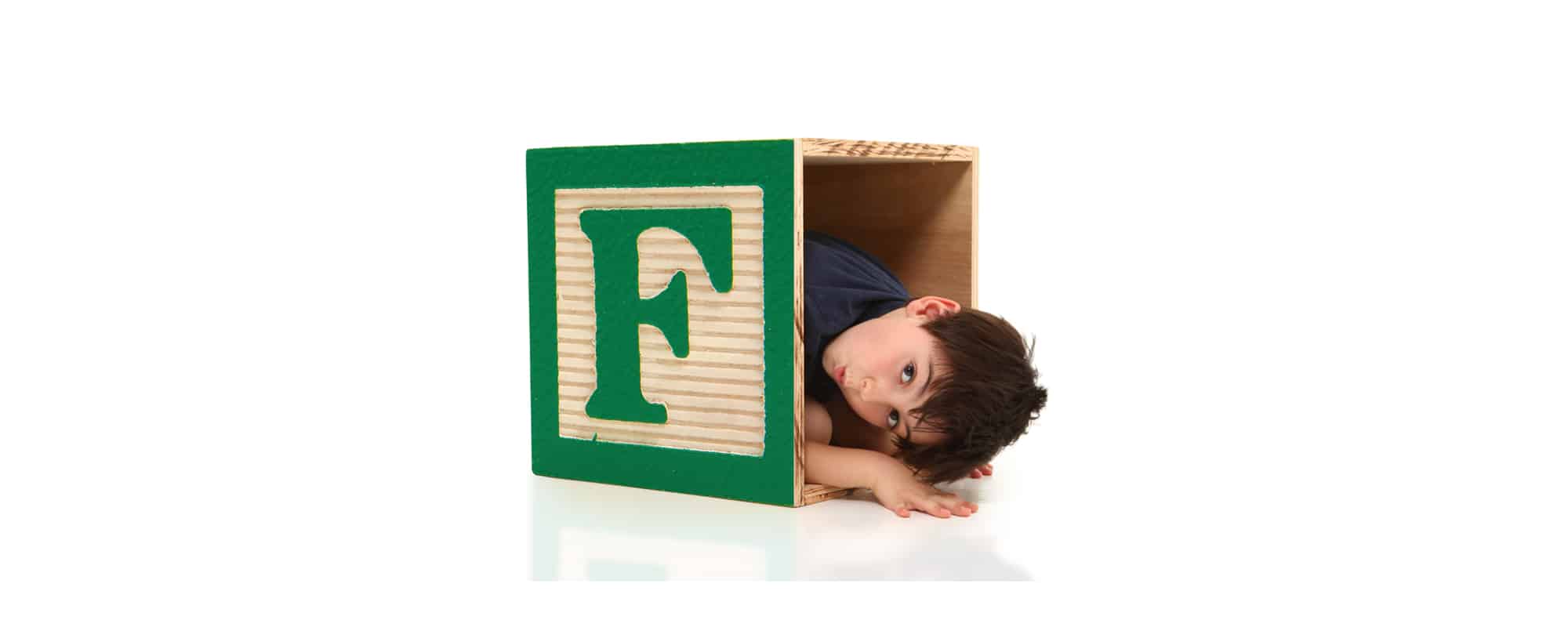In the past decade, there have been some exciting new developments in the field of child and youth health. The World Health Organisation’s ICF framework for health for everyone (see Figure 1) reminds us of the intimate connections between our bodies, our minds and spirits, and the world around us – the many environments that affect everything we are and everything we do.
Our traditional ideas about illness and disability led us to believe ‘the problem is in the person and the spotlight needs to be on trying to fix it’. Today, we are making the spotlight wider and seeing much more – the ‘rest’ of the person and their environments! That way of thinking gives us permission to think differently – more broadly and more flexibly. We are no longer being tyrannised by having to do things ‘normally’ – that’s a silly idea at the best of times. Thinking about ‘normal’ prevents us from celebrating the vast diversity among us, and the many ways people do things. Just look at how many people are left handed, or how different people hold a pencil when they are writing. These are not ‘abnormal’, teachers know this!
Our Canadian research group, CanChild Centre for Childhood Disability Research, has embraced the ICF concepts in all our work. This has allowed us to think outside the box. We recognise that of course we should use the best of proven therapies and treatments, but we also encourage people to function in ways that enable them to achieve their goals, even if they do things differently or need equipment (as do so many of us who wear glasses to see better).
What we wanted to do was to bring the ICF ideas to life for kids and families, and the F-words were a fun way to do that.
As shown in Figure 2, we wanted people to think about Fitness – of mind and body – and not just focus on fixing the ‘impairments’ that can interfere with people’s wellbeing. Functioning is about activities that are part of all our everyday lives. Notice that this word does not say ‘normal’ functioning, or ‘nice’ functioning – it’s about just doing it, however we can. As children, we all do things in ‘childish’ ways; then we practice and learn and develop, and often these activities get easier, faster, smoother.

The ICF talks about participation, meaning ‘engagement in life in ways that are meaningful to that person’. We illuminated this idea with the word Friends, because so much of children’s lives is about social connections and learning from others – both peers and adults. What personal factors can we identify and build on to enhance all aspects of children’s lives? Think about what is Fun for that child.
Of course, the most important and obvious environment for children is their Family. This is where they grow and develop – being, belonging, and becoming their own person. Finally, we added the word Future to remind everyone that children are a work-in-progress, and that we must keep the horizon in mind and celebrate every step on the journey to adulthood, however that step is performed.
With the input of parents and colleagues around the world, we have created an ever-expanding array of resources for people to be able to apply these F-words ideas. All are downloadable for free on our F-words hub: www.canchild.ca/f-words. They include ways for parents to present their child and family with pictures (in a collage) or words; for service providers to create F-words goal sheets with families; for people to ‘boast’ about their children’s achievements… so hopefully there are tools that you will find useful. There are also examples of work that children’s programs are doing to adapt their whole approach to what they do in F-words concepts.
Note as well that if you have ideas and are willing to share them with us, we will post them on the F-words hub with your name! These are meant to be resources for everyone.
People seem to appreciate that this is a universal model, for all people, not just for children and not just for people with disabilities. These ideas see a person in context of their own unique world. They celebrate strengths and diversity, emphasising what people can do.
Do these ideas work? Judging by the amazing uptake of the F-words around the world, the answer seems to be – Yes! The original 2012 paper has been downloaded more than 45,000 times. We have had over 66,000 unique visitors make more than 78,000 visits to the F-words hub, and have over 30 translations of the F-words posters.
Let me end this brief story with a quote from a parent that says more than I could:
“You will gather information from reports, testing and IEP goals and this will give you invaluable insight into my son’s needs. For a fuller picture of my awesome child, however, I would like to present you with the following document (his F-words profile) from my child, about my child.”
Please feel free to share your ideas with us, ask us questions, challenge us… that we way we can all continue to learn! Head to www.canchild.ca to learn more about the F-words.
1 World Health Organisation (2001) International Classification of Functioning, Disability and Health (ICF)
2 Rosenbaum P & Gorter JW. (2012). The ‘F-words’ in childhood disability: I swear this is how we should think! Child Care Health Dev; 38
For more on CanChild and the F-words tune into Episode 109 of the PakMag Parents Podcast with our special guest Dr Rosenbaum www.pakmag.com





